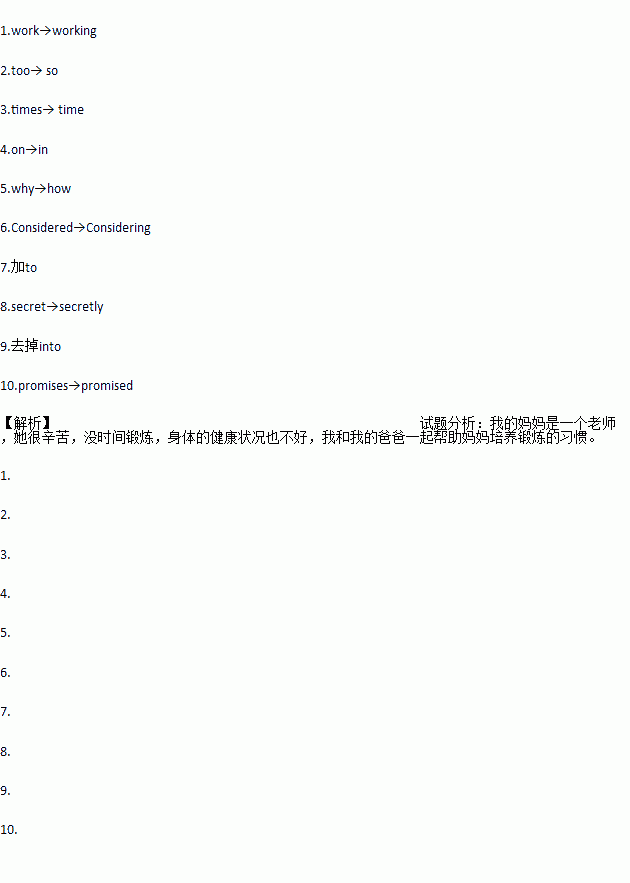题目内容
增加:在缺词处加—个漏词符号(∧),并在此符号下面写出该加的词。
修改:在错的词下划一横线,并在该词下面写出修改后的词。
注意:1、每处错误及其修改均仅限一词;
2、只允许修改10处,多者(从第11处起)不计分。
My mother is a teacher work in a key high school. She is too busy that she often has to get up early and stay up late. In addition to this, she hardly has any times to take exercise. She has been on poor health for some time. My father and I are worried that she may fall ill if she works too hard. These days I’m thinking why to develop my mother’s interest in playing sports. Considered that today is Mother’s Day, I decided buy a pair of jogging shoes for her. I secret put them on the desk in her study. When my mother entered into her study this evening, she looked surprised, but she immediately realized my intention. She promises that she would go jogging every evening.
 天天向上一本好卷系列答案
天天向上一本好卷系列答案 小学生10分钟应用题系列答案
小学生10分钟应用题系列答案
